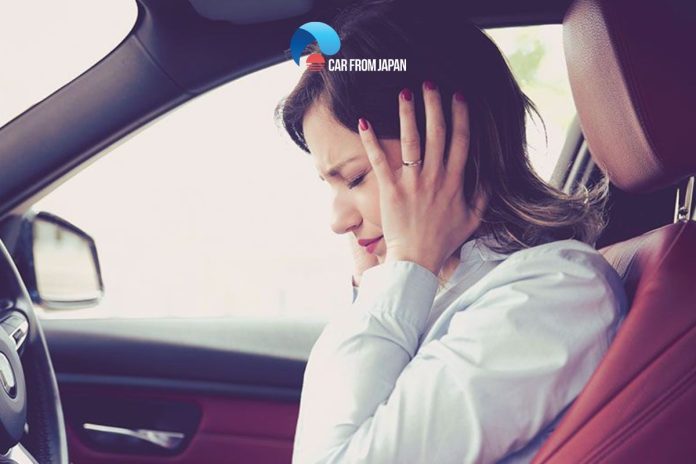Are you worried when you hear strange noises like an airplane taking off coming from your beloved car?
To help you enjoy your ride, we will take you on an interesting topic that we think many drivers have experienced, to answer a question Why does my car sound like an airplane?
Contents
- Common Reasons Why Car Sounds Like An Airplane
- How To Fix When Your Car Sounds Like An Airplane?
- FAQs on Car Sounds Like Airplane
- Why does cars sound like an airplane even when it’s idling?
- Is it normal for a turbocharged engine to sound like an airplane?
- Why does my hybrid car make a plane-like sound when braking?
- My car sounds like an airplane only on the highway, why?
- Why does a car sound like an airplane but drives perfectly fine?
- Final Words
Common Reasons Why Car Sounds Like An Airplane
When your car starts developing problems, the first sign that you can find out is an unfamiliar sound like an airplane while you are driving, especially when you get a higher speed or braking.
This noise can be very tricky for drivers to accurately diagnose the damage.
We often mistake noises such as clicking noise, grinding, or squealing noise. But when your car has the sound like an airplane, it is described as a hum, growl, or roaring noise and it will get louder when you accelerate.
Most drivers also described the noise as sounding like an airplane, but it can sound like you’re traveling over a noisy strip or like a helicopter propeller.
When you are getting some really loudsy noise somewhere in the 72 to 75-decibel level at about 50, 60 miles an hour, wonder what happened to your car?
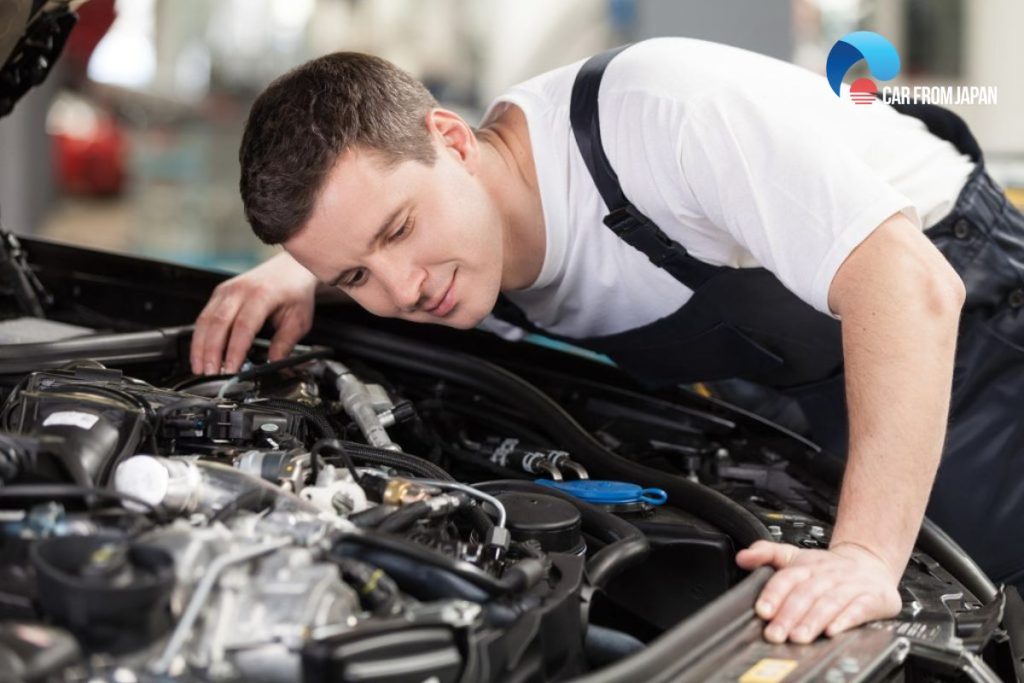
Damaged wheel bearings
The first reason that we think you shouldn’t ignore when you hear the sound of an airplane from your car is to check your wheel bearing whether it can be worn out or the seal is broken.
Automotive bearings are located in the vehicle’s drive system, whose main role is to reduce friction, increase load capacity, and position rotating equipment.
When the balls of the bearing are dry or broken, because the grease in the bearing is degraded, they will make an annoying noise like flying in the air.
This noise, if it lasts too long and is not repaired, will increase the friction during the movement of your car, and generate a lot of heat, leading to damage to parts such as the wheel hub and the engine.
Therefore, when noticing the sound of an airplane from the wheel, the driver should immediately check the bearings to limit the damage to the vehicle. If this condition is prolonged, the wheel axle will be damaged.
As we all know, the function of seals prevents water or dirt from wheel bearings and they also protect the grease that the bearing needs to operate. When the wheel seal is bad or damaged, the wheel bearing will be broken quickly.
When your wheel bearing loses its lubrication, the metal of the drive will crush against the metal of the wheel axle. This will be like a roar of noise and will increase the volume as the car accelerates.
Car exhaust system leak
If you have a brand new wheel bearing, but you still hear the car sounds like a helicopter or airplane when accelerating, pay attention to the exhaust system. It’s usually a sign of an exhaust leak.
Depending on the sound level of the exhaust, we can determine the corresponding cause. However, this situation occurs mainly due to a damaged exhaust duct system, a cracked exhaust, or a leaky gasket.
To determine the cause of the roaring sound exactly, it is necessary to find the location of the noise in the exhaust system.
First park the car on a flat surface, pull the handbrake, then check under the car to see where the noise is coming from.
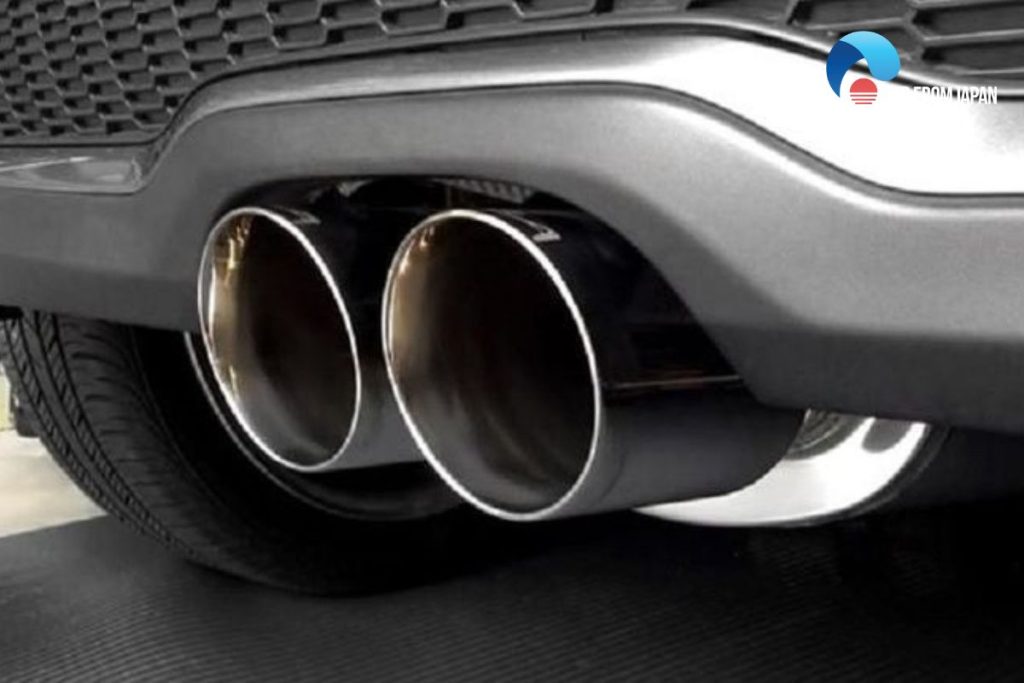
If you hear a noise coming from the front of the vehicle, it may be due to an exhaust leak because the exhaust system gasket is worn out, the exhaust bolt is loose, and the exhaust pipe is cracked.
If you hear a noise in the center of the undercarriage, it is usually due to a punctured exhaust pipe or a leaky connection between the exhaust pipe and the catalytic converter.
A more serious case is a broken catalytic converter. At this time, the noise is usually very loud and jarring.
Transmission system issue
Another reason is your car transmission not working properly. There are 2 situations happening.
For cars with a manual transmission, when the driver shifts gears, the gearbox makes a roaring or squeaking sound, which means that the transmission system is faulty.
With hundreds of parts in a transmission, a single gear or even a worn housing can make a loud noise.
In contrast, if your car uses an automatic transmission, the sound of the damaged transmission is like a humming, rattling sound.
However, if the gearshift lever vibrates, shifting is more difficult, or the vehicle vibrates/jerks when accelerating, you should have the vehicle checked immediately. This sign can be related to the engine, exhaust system, differential, etc.
Determining exactly which part the noise is coming from is extremely important to find a way to deal with.
The possible case involves the transmission: When your car is in the park or neutral but the car still makes an annoying noise.
This sign indicates that the transmission fluid needs to be changed. In this case, most of the noise is caused by worn bearings or gears in the gearbox, which is due to be replaced.
Problems with the brake system
The brake system is one of the parts you should take a look at when hearing your car sound like a jet.
The most common reason causing this problem is a worn-out pad or rotor. Because, if the brake pads have been used for a long time, the rear metal surface will gradually wear out.
This causes the metals to contact each other and creates a growling noise. In addition, the rotor can also rub against the brake calipers and scrape the metal surface of the caliper.
Furthermore, the rear metal surface and the brake calipers will self-abrade, creating trails and damage.
Car tire problems
Besides the common reasons we have analyzed above, there is a possible cause that can lead to your car making a sound like an airplane, car tires.
Uneven wear is one of the main causes of the “airplane” noise due to the uneven contact between the road surface and the tires.
The tread depth is not uniform which will make the tires make loud driving noises. Tire noise can originate from alignment problems. As you drive, the air chamber makes hums or roars.
If your car has outdated wheel alignment, you will experience a more bumpy ride. This will cause the tire to move unevenly and make the sound from the chamber louder.
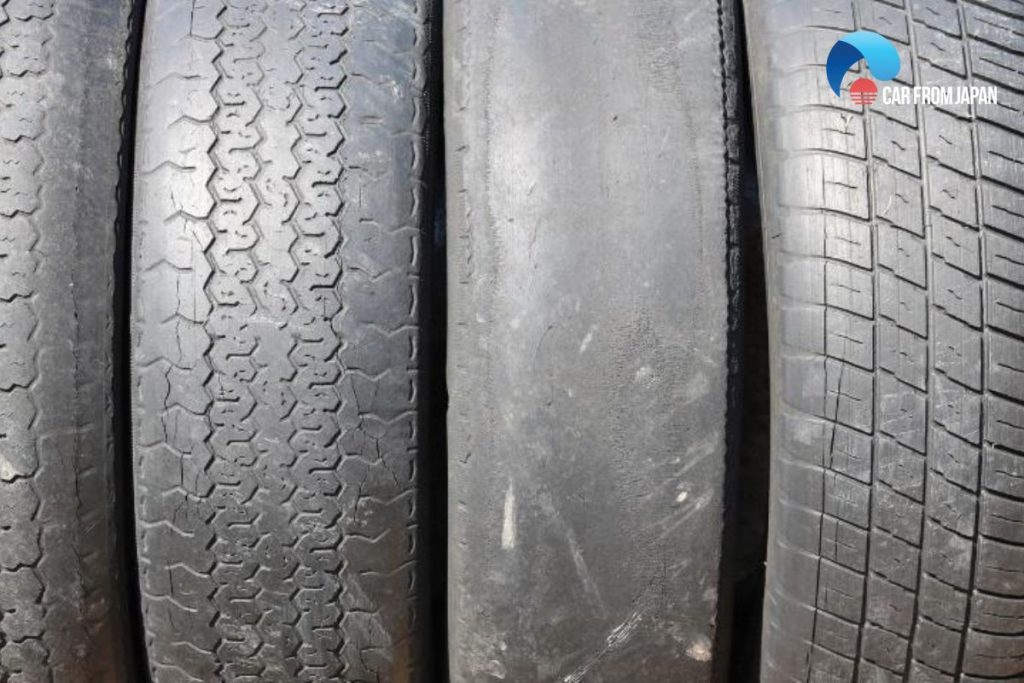
Damaged muffler or resonator
A damaged or failing muffler or resonator can compromise this noise reduction, leading to a noticeably louder exhaust note. This can manifest as a droning, booming, or rumbling sound, particularly at higher speeds or under acceleration.
A hole in the muffler is a common cause of excessive noise, but internal damage to the baffles or packing material can also contribute to a louder exhaust.
Vacuum leaks
Leaks in this system can disrupt the carefully regulated vacuum pressure, leading to a range of performance issues. A vacuum leak often produces a hissing, sucking, or whistling sound, sometimes resembling a high-pitched whine.
Beyond the noise, vacuum leaks can negatively impact engine performance, fuel efficiency, and emissions, making it essential to address them promptly.
Worn or damaged belts and pulleys
The serpentine belt drives various engine accessories, including the alternator, power steering pump, and air conditioning compressor.
A worn or damaged belt can create a high-pitched squealing or chirping noise, particularly when the engine is cold, under load, or when accelerating.
Similarly, a damaged or worn pulley can produce a similar noise as the belt slips or rubs against it. These sounds often change with engine speed and can sometimes be intermittent.
Failing alternator or power steering pump
Both the alternator and power steering pump rely on bearings and belts for proper operation. As these components wear out, they can generate a whining or groaning noise that typically increases with engine speed.
A failing alternator might also cause electrical issues, such as dimming headlights or difficulty starting the engine. A failing power steering pump can make steering stiff or difficult, particularly at low speeds.
Turbocharger issues (Turbocharged engines)
Turbochargers use a turbine driven by exhaust gases to force more air into the engine, boosting power output.
A failing turbocharger can produce a distinctive whining or whistling sound, sometimes likened to a jet engine or a high-pitched siren.
This noise often becomes more pronounced under acceleration. Other symptoms of a failing turbocharger include reduced engine power, excessive smoke from the exhaust, and increased oil consumption.
Intake issues
The air intake system is responsible for delivering clean air to the engine. Problems within this system, such as a loose or damaged air filter housing, a cracked intake tube, or a clogged air filter, can disrupt airflow and sometimes create unusual noises.
These noises can range from a whooshing or sucking sound to a whistling or hissing, depending on the nature and location of the issue. Restricting airflow can also negatively impact engine performance and fuel efficiency.
How To Fix When Your Car Sounds Like An Airplane?
Corresponding to the causes we have listed, we recommend several suitable solutions to deal with these problems.
Car wheel bearings
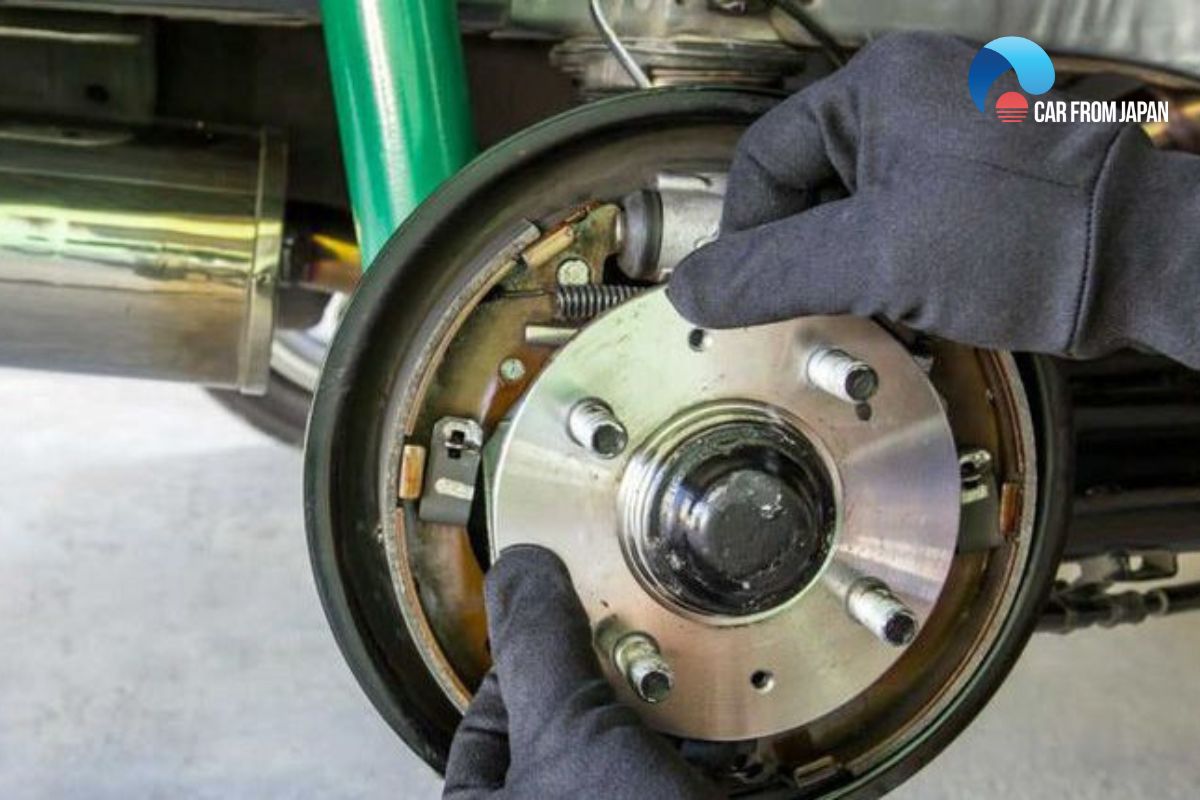
There are some reasons that cause the loud noise from your wheel bearing: Wheel bearings lose the lubricant and water or debris gets into the bearing causing it to fail due to the oxidation process.
In particular, car owners should pay attention to the case of choosing inappropriate bearings, causing this part to overload and generate a large amount of heat, making it wear out quickly.
Therefore, in order to avoid the problem, drivers need to choose the right bearings for the load of their car. This not only helps prolong the life of the bearings but also helps to reduce the noise.
In case the bearings and wheel hubs are damaged, handle and install them properly to both ensure the bearings work smoothly and limit the loud sound. In addition, drivers need to regularly use the right lubricant for the wheel bearings.
Sometimes, when the bearings emit a loud noise for a long time. This indicates that your bearings are seriously damaged, and replacing the wheel bearing is inevitable.
Exhaust system
Check every inch of your exhaust pipe from the exhaust to the top of the muffler. In fact, a small crack in the muffler is the most likely place to cause your car to sound like a jet, as the part can rust over the years.
However, small and thin cracks are hard to see visually, so it’s best to have them checked by a professional.
You can repair it at home if you have the right tools. But it’s not easy so you should take your car to the mechanic to take timely measures.
Car transmission
The roaring sound from the transmission usually indicates that there is a problem with the transmission fluid level.
Problems can be more serious if you forget to check the transmission fluid level or transmission leak.
In this situation, you can fix it by checking the fluid regularly to know when you should change the fluid or add more.
When the gear system starts to crash, you’ll first notice a whining sound. If you think that the gear system in your transmission is damaged, schedule a maintenance check immediately.
Brake system
Sometimes your brake pads are damaged. Other factors that can cause brake noise include dirt and debris on the brake pads, rotors, and bad brake shoe return springs.
It will be difficult to correctly diagnose the cause of the loud brake sound. If rotors warp or have an uneven surface.
You can retouch them to their highest condition by repositioning during machining at a service center.
However, if the condition is too bad, you may have to get new ones. Likewise, damaged drum brakes also need to be replaced or resurfaced depending on the level of damage.
Check vacuum leaks
Inspect vacuum hoses for cracks, splits, or loose connections.
You can sometimes detect a vacuum leak by listening for a hissing sound or by spraying a flammable starting fluid (like carb cleaner) near the hoses while the engine is running. A change in engine idle speed suggests a leak in the area where you sprayed.
Caution: Be careful when using flammable sprays near a hot engine.
Inspect belts and pulleys
Examine the serpentine belt for wear, cracks, or fraying. Check the pulleys for any signs of damage, wobbling, or excessive play. A worn belt or damaged pulley can create squealing or whining noises.
Test the alternator and power steering pump
Have a mechanic test the alternator and power steering pump to assess their condition. A whining noise that increases with engine speed often points to a failing bearing in one of these components.
Check car tires
Abnormal tire wear, such as the tube, can be caused by suspension problems or alignment. Your tire will make more noise if the tread pattern is uneven.
Changing your tire is essential but fixing and replacing the suspension will prevent the problem from recurring.
We recommend you rotate your tire every 5,000 to 8,000 miles. It’s a great way to help your tire prevent excessive wear.
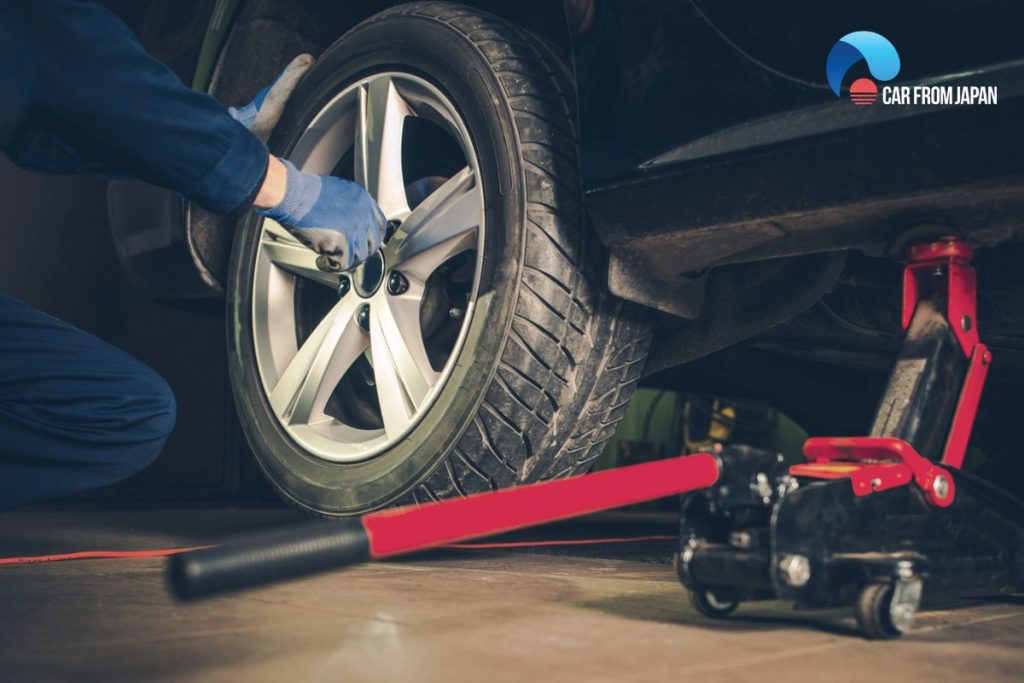
FAQs on Car Sounds Like Airplane
Why does cars sound like an airplane even when it’s idling?
This could be due to a failing radiator fan motor or a faulty serpentine belt.
When these parts wear out, they can create a loud, turbine-like whirring even at a standstill.
Is it normal for a turbocharged engine to sound like an airplane?
To some extent, yes. Turbochargers can emit a high-pitched whine or whistle when spooling up, which some drivers describe as “airplane-like.”
However, if it becomes louder than usual, it might indicate a boost leak or failing turbo.
Why does my hybrid car make a plane-like sound when braking?
Regenerative braking systems in hybrids can produce unusual whining or humming noises due to the electric motor working in reverse, which some drivers find similar to aircraft noise.
My car sounds like an airplane only on the highway, why?
Aerodynamic issues such as a loose undercarriage panel or damaged weather stripping can create wind resonance or vibration that mimics the sound of air rushing over an aircraft.
Why does a car sound like an airplane but drives perfectly fine?
This may be a case of harmless noise from a combination of tire tread, wind resistance, and engine sound.
It’s still worth checking wheel bearings, the exhaust system, and underbody panels.
Final Words
So here’s our answer for the question why does my car sound like an airplane. Regardless of where the sound comes from, a loud airplane sound is always a worrisome problem that requires special attention.
For sure, the car sound can ruin your mood, and more importantly, it is a sign that your car is experiencing damages that can affect your safe driving.
For more insightful Car maintenance tips, follow Car From Japan!

